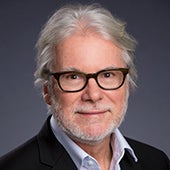Counseling Psychology
Department of Educational Psychology
The Counseling Psychology doctoral program is one of the longest continuously APA accredited Counseling Psychology programs in the country. Our scientist-practitioner-based program prepares Ph.D. psychologists to work with both specific and general problems of human behavior in the context of a range of social processes and systems.
Our faculty are committed to honoring cultural identities and promoting a culture of belonging. We respect and value all aspects of human experiences and backgrounds and other dimensions and intersections of individual and group identity and culture. Our intentional commitments to these values inform research and practice among faculty and students and facilitate our work to train effective practitioners and influential scholars for the future of our profession and society.
Admissions
All prospective students must apply via the Graduate School by December 1. Counseling Psychology typically invites candidates for online interviews at the end of January.
The following faculty will be reviewing applications and planning to admit students in the next application cycle: Ricardo Ainslie, Chris Brownson, Chris McCarthy, Jennifer Mootz and Afroze Shaikh.
Student selection is based on multiple factors including:
- undergraduate grades,
- letters of recommendation,
- relevant professional activities,
- demonstrated interest and productivity in research, and
- match between student and faculty interests.
Recommendation letters and personal statements that reflect intellectual curiosity, tenacity, open-mindedness, interpersonal sensitivity and integrity are also highly valued.
Mentoring
The Counseling Psychology faculty subscribes to APA’s (2017) definition of mentoring as a dynamic and reciprocal, personal relationship. Each student accepted into the Counseling Psychology program is assigned a core member of the faculty as an advisor/mentor based on student and faculty interests. Ideally, the mentorship/advising process provides:
- both career and psychosocial mentoring functions,
- a safe
–harbor for self-exploration, and - a transformation in the mentee’s professional identity.
The faculty advisor is responsible for assisting and guiding the student through the program. It is expected that the faculty advisor and student mentee will meet as often as needed to discuss the student’s progress in the program and any questions or concerns. Although the advisors will be the students’ primary research mentors, students may also choose to pursue opportunities to work with other faculty in the program and department.
Practicum Training
Practicum training is an essential component of the scientist-practitioner model and our program. It is a developmental process that is sequential and graded in complexity. The first year of practicum training (generally the second year of the doctoral program) will involve more direct training and support from program faculty and include basic training in assessment and intervention via the UT Counseling and Mental Health Center (CMHC) – Counseling Psychology Training Clinic.
In the third year of practicum (generally the fourth year of the doctoral program), you may apply to receive training in a hospital, VA, or community mental health clinic where they are supervised by on-site licensed psychologists, as well as their course instructor.
Counseling Psychology students also have the opportunity to be considered for the competitive UT Integrated Behavioral Health Scholars Program.
Program Aims
Four aims guide the program’s graduate training:
- Prepare counseling psychologists who are sophisticated researchers and scholars, able to critically integrate research literature and to design and conduct methodologically rigorous empirical studies
- Prepare counseling psychologists who are competent and are well-prepared to enter applied practice
- Develop counseling psychologists who are socially responsible and ethical
- Develop culturally competent counseling psychologists who are aware of their own attitudes, values, beliefs, and biases, and how they may impact their professional activities
All four aims of the program rest upon competence in broad and general knowledge of psychology as a discipline. Discipline-specific knowledge is articulated in the APA Standards of Accreditation for Health Service Psychologists (APA SOA). Discipline-specific knowledge serves as a foundation and cornerstone to identity as a psychologist.
Program of Work
Please note required coursework may vary from year to year. Current students should always defer to their Program of Work for course requirements and consult with their faculty advisor / Graduate Advisor for any needed clarifications.
Discipline-Specific Knowledge Foundations
All four aims of the program rest upon competence in broad and general knowledge of psychology as a discipline. Discipline-specific knowledge is articulated in the APA Standards of Accreditation for Health Service Psychologists (APA SOA). Discipline-specific knowledge serves as a foundation and cornerstone to identity as a psychologist. All students in APA-accredited doctoral programs are required to demonstrate knowledge in the discipline of psychology, broadly construed. This discipline-specific knowledge base includes:
- the history and systems of psychology,
- basic content areas in scientific psychology;
- integrative knowledge in scientific psychology; and
- methods of inquiry and research.
This foundation is obtained through the following course requirements for the doctoral counseling psychology program, which are completed in the initial three years of graduate study prior to admission to candidacy.
Category I: History & Systems
EDP 382D.2 History & Systems of Psychology
Category II: Basic Content Areas in Scientific Psychology
- EDP 382D.4 Psychology of Learning or EDP 382D.5 Motivation & Emotion
- EDP 382F.3 Life Span Development (This course includes coverage of the affective bases of behavior DSK knowledge area.)
- EDP 382C.2 Social Psychology
- EDP 382E.2 Biological Bases of Behavior
Category III: Advanced Integrative Knowledge
Advanced Integrative Knowledge (AIK) reflects the integration of knowledge gained across the above requirements. Competency in AIK is demonstrated by submission of a paper that integrates two DSK areas in relation to a topic of interest. Students are required to complete this paper at two time points – during the spring semester of their 3rd year and during the spring semester of their 4th year, submitted to their practicum course instructor. The description of this assignment and a grading rubric is included in the student syllabus for their practicum course.
Category IV: Research Methods, Statistical Analysis, and Psychometrics
- EDP 380C.2 Fundamental Statistics
- EDP 480C.6 Statistical Analysis of Experimental Data
- EDP 480C.4 Correlation and Regression
- EDP 381C.2 Research Design and Methods for Education and Psychology
- EDP 380.D.4 Psychometric Theory and Methods
Counseling Psychology Professional Coursework
Program Aims 2 & 3 require knowledge and competence in the delivery of health services in the specialty of counseling psychology. (See Profession Wide Competencies). This knowledge and foundational competence are acquired in the following required courses and required clinical experiences (practicum and internship):
- EDP 384C.2 Theories in Counseling
- EDP 383C.30 Developmental Psychopathology
- EDP 384C.6 Helping and Counseling Skills
- EDP 383C.12 Assessment in Counseling
- EDP 385C.5 Professional Orientation/Ethics in Counseling
- EDP 384C.18 Multicultural Counseling
- EDP 384C.24 Cognitive Behavioral Therapy with Adults
- EDP 382D.2 History and Systems of Psychology
- EDP 382E.2 Biological Bases of Behavior
- EDP 385C Advanced Consultation, Collaboration, Supervision
- EDP 194.16 Internship Colloquium
Research Competency Courses
EDP 395R Qualifying Process (2 semesters). Note: While the QP process is required, enrollment in this course is optional.
EDP 398R En-Route Master’s Report (1 semester required for all doctoral students who entered without a Master’s degree)
EDP 3/6/999W Dissertation (minimum 2 semesters)
Clinical Experience Courses
EDP 384Q Practicum in Counseling: At least 5 semesters of practicum is required, including one summer semester and 4 long semesters, as described below. Students are required to register in the course if they plan on doing any practicum work for the practicum training to be counted as a training experience. Students must attend at least 4 long semesters of the practicum course (e.g. register and attend the seminar class). After the attendance requirement is met, students must still register if they are doing practicum work, but class attendance is optional.
- Summer between 1st and 2nd years: Assessment practicum (requires registration in EDP 384Q, attendance in the seminar class is not required)
- 2nd year Fall and Spring: 2nd year Counseling Practicum with In-House CMHC/CP Clinic (requires registration in EDP 384Q and attendance of the practicum course)
- 3rd year Fall and Spring: Practicum with the CMHC (requires registration in EDP384Q, and attendance in practicum course is required if student is not planning to complete a practicum in 4th year)
- 4th year: Practicum is optional but often necessary for internship preparation (if student completes practicum: requires registration in EDP 384Q, and attendance in practicum course is required if student did not complete attendance requirement in previous years)
- 5th year: Practicum is optional
EDP 1/393N Internship in Counseling Psychology (3 semesters required, APA accredited internship site, selected through application, interview and APPIC Match process)
Professional Interest Component Courses
Counseling Psychology students must complete two courses to meet the Professional Interest Component (PIC) course requirement. These courses are defined as counseling-related courses taught by faculty members in the program. Students are required to take Career Development or Group Counseling as one PIC course. Both courses may be taken to fulfill this requirement, or a second course that meets the definition of a PIC course. Examples are listed below:
- EDP 384C.6 Career Development
- EDP 384D Group Counseling
- EDP 384C.14 Addictions Counseling
- EDP 384C Motivational Interviewing
Out-of-Specialization Courses
Out-of-Program: EDP and the Graduate School require that students complete 9 credit hours of courses outside their program area of study. Within EDP the Graduate Studies Committee (GSC) imposes the following rules on this requirement:
- 3 credit hours may be met with the course, Biological Bases of Behavior;
- 3 credit hours may be met by a course outside the student’s program but within EDP;
- 3 credit hours must be taken outside the department.
Students may complete this requirement entirely with out-of-department courses if they prefer, and students who enter the doctoral program with a master’s degree in a related area may request a waiver of this requirement.
Dissertation
Dissertation: EDP 3/6/999W Dissertation, beginning the semester following advancement to candidacy. 6+ hours
Faculty

Explores the intersection of psychology and culture through such topics as the psychological experience of immigration, ethnic conflicts and the impact of violence within communities, and the relationship between individual and collective identity. ...
Accepting new students

Research interests include mental health public policy, college student mental health and suicide prevention, collaborative care models of behavioral health in primary care, and the intersection of mental health and academic success.
Accepting new students

Supports the clinical training of doctoral students, teaches clinically-focused courses and prepares students for psychology internship training. Jane Gray does not serve as a research mentor for students in the School Psychology nor Counseling ...

My Coping and Stress in Education Lab conducts research at the intersection of health, psychology, and education. The focus of our work generally is on promoting wellness and optimal functioning in educational settings. Current work includes studie...
Accepting new students


Focuses on suicide prevention, healthcare access, mental health service use, and aging
Accepting new students
Accreditation Information
The Counseling Psychology doctoral program at the University of Texas has been continuously accredited by the American Psychological Association (APA) since 1953; the program’s next re-accreditation site visit will be in 2033. Accreditation status may be confirmed by APA via:
Education Directorate
Office of Program Consultation and Accreditation
750 First St. NE
Washington, DC 20002-4242
Phone: (202) 336-5979
TDD/TTY: (202) 336-6123
Fax: (202) 336-5978
Email: apaaccred@apa.org
Affiliated Lab
Explores the intersection of health, psychology, and education by researching how to promote wellness and productivity in educational settings.
Additional Information
Program Starts: Fall
Deadline to Apply: December 1
Schedule: Full-time enrollment required until admitted to candidacy
Credit Hours Required: 98
Program Location: On Campus
GRE Required? No

Area Chair
Ricardo Ainslie
Let us know what your academic interests are within the College of Education and we’ll be in touch.



